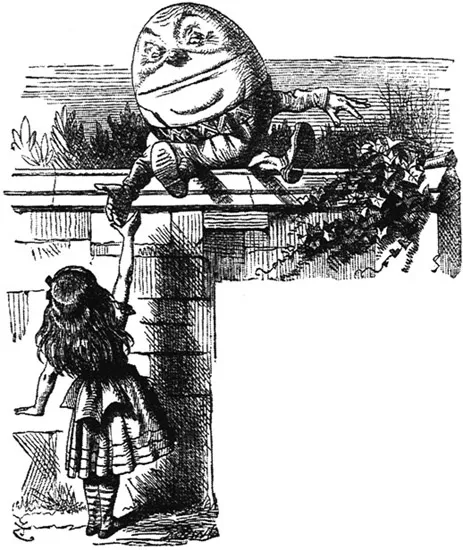The opening chapter introduces the main themes of the book. The next chapter examines and clarifies the concept ‘word’. Chapter 3 investigates the basic elements of word structure and Chapter 4 explores how complex words are built.
1.1 Why study words?
Imagine a life without words! Trappist monks opt for it. But most of us would not give up words for anything. Every day we utter thousands and thousands of words. Communicating our joys, fears, opinions, fantasies, wishes, requests, demands, feelings – and the occasional threat or insult – is a very important aspect of being human. The air is always thick with our verbal emissions. There are so many things we want to tell the world. Some of them are important, some of them are not. But we talk anyway – even when we know that what we are saying is totally unimportant. We love chitchat and find silent encounters awkward, or even oppressive. A life without words would be a horrendous privation.
It is a cliché to say that words and language are probably humankind’s most valuable single possession. It is language that sets us apart from our biologically close relatives, the great primates. (I would imagine that many a chimp or gorilla would give an arm and a leg for a few words – but we will probably never know because they cannot tell us.) Yet, surprisingly, most of us take words (and more generally language) for granted. We cannot discuss words with anything like the competence with which we can discuss fashion, films or football.
We should not take words for granted. They are too important. This book is intended to make explicit some of the things that we know subconsciously about words. It is a linguistic introduction to the nature and structure of English words. It addresses the question, ‘what sorts of things do people need to know about English words in order to use them in speech?’ It is intended to increase the degree of sophistication with which you think about words. It is designed to give you a theoretical grasp of English word-formation, the sources and evolution of English vocabulary and the way in which we store words and retrieve them from the mind.
I hope a desirable side effect of working through English Words will be the enrichment of your vocabulary. This book will help to increase, in a very practical way, your awareness of the relationship between words. You will be equipped with the tools you need to work out the meanings of unfamiliar words and to see in a new light the underlying structural patterns in many familiar words which you have not previously stopped to think about analytically.
For the student of language, words are a very rewarding object of study. An understanding of the nature of words provides us with a key that opens the door to an understanding of important aspects of the nature of language in general. Words give us a panoramic view of the entire field of linguistics because they impinge on every aspect of language structure. This book stresses the ramifications of the fact that words are complex and multi-faceted entities whose structure and use interacts with the other modules of the grammar such as PHONOLOGY, the study of how sounds are used to represent words in speech; SYNTAX, the study of sentence structure; and SEMANTICS, the study of meaning in language.
In order to use even a very simple word, such as frog, we need to access various types of information from the word-store which we all carry around with us in the MENTAL LEXICON or DICTIONARY that is tucked away in the mind. We need to know:
- [1.1] 1 its shape, i.e. its PHONOLOGICAL REPRESENTATION /frɒg/which enables us to pronounce it, and its ORTHOGRAPHIC REPRESENTATION frog, if we are literate and know how to spell it (see the Key to symbols used on pages xvii–xix);
- 2 its grammatical properties, e.g. it is a noun and it is countable – so you can have one frog and two frogs;
- 3 its meaning.
But words tend not to wear their meaning on their sleeve. Normally, there is nothing about the form of words that would enable anyone to work out their meaning. Thus, the fact that
frog refers to one of these guys
simply has to be listed in the lexicon and committed to memory by brute force. For, typically, the relationship between a
LINGUISTIC SIGN like the word
frog and its meaning is
ARBITRARY. Other languages use different words to refer to this small tailless amphibian of the genus Rana. In French
it is called
(la) grenouille. In Malay they call it
katak and in Swahili
chura. None of these words is more suited than the others to the job of referring to this creature.
And, of course, within a particular language, any particular pronunciation can be associated with any meaning. So long as speakers accept that sound–meaning association, they have a kosher word. For instance, convenience originally meant ‘suitability’ or ‘commodiousness’, but in the middle of the nineteenth century a new meaning of ‘toilet’ was assigned to it and people began to talk of ‘a public convenience’. In the early 1960s the word acquired the additional new meaning of ‘easy to use, designed for hassle-free use’ as in convenience food.
As Humpty Dumpty pointed out to Alice, we are the masters and words are our servants. We can make them mean whatever we want them to mean. The only thing missing from Humpty Dumpty’s analysis is the social dimension. Any arbitrary meaning assigned to a word needs to be accepted by the speech community which uses the language. Obviously, language would not be much use as a means of communication if each individual language user assigned a private meaning to each word which other users of the language did not recognise. Apart from that, it is instructive to listen in on the lesson on the nature of language that Humpty Dumpty gave to Alice ([1.2] on p. 6).
Let us now consider one further example. All competent speakers of English know that you can add -s to a noun to indicate that it refers to more than one entity. So, you say cat when referring to one and cats if there is more than one. If you encountered in the blank in [1.3a] an unfamiliar word like splet (which I have just made up), you would automatically know from the context that it must have the plural form splets in this position since it is specified as plural by all. Further, you would know that the plural of splet must be splets (rather than spletren by analogy to children or spleti by analogy to stimuli). You know that the majority of nouns form their plural by adding the regular plural suffix or ending -s. You always add -s unless express instructions are given to do otherwise. There is no need to memorise separately the plural form of most nouns. All we need is to know the rule that says ‘add -s for plural’. So, without any hesitation, you suffix -s to obtain the plural form splets in [1.3b]:
- [1.3] a We put all the big ______ on the table.
- b We put all the big splets on the table.
[
1.2]
‘As I was saying, that seems to be done right – though I haven’t time to look it over thoroughly just now – and that shows that there are three hundred and sixty-four days when you might get unbirthday presents –’
‘Certainly,’ said Alice.
‘And only one for birthday presents, you know. There’s glory for you!’
‘I don’t know what you mean by “glory”,’ Alice said.
Humpty Dumpty smiled contemptuously. ‘Of course you don’t – till I tell you. I meant “there’s a nice knock-d...






